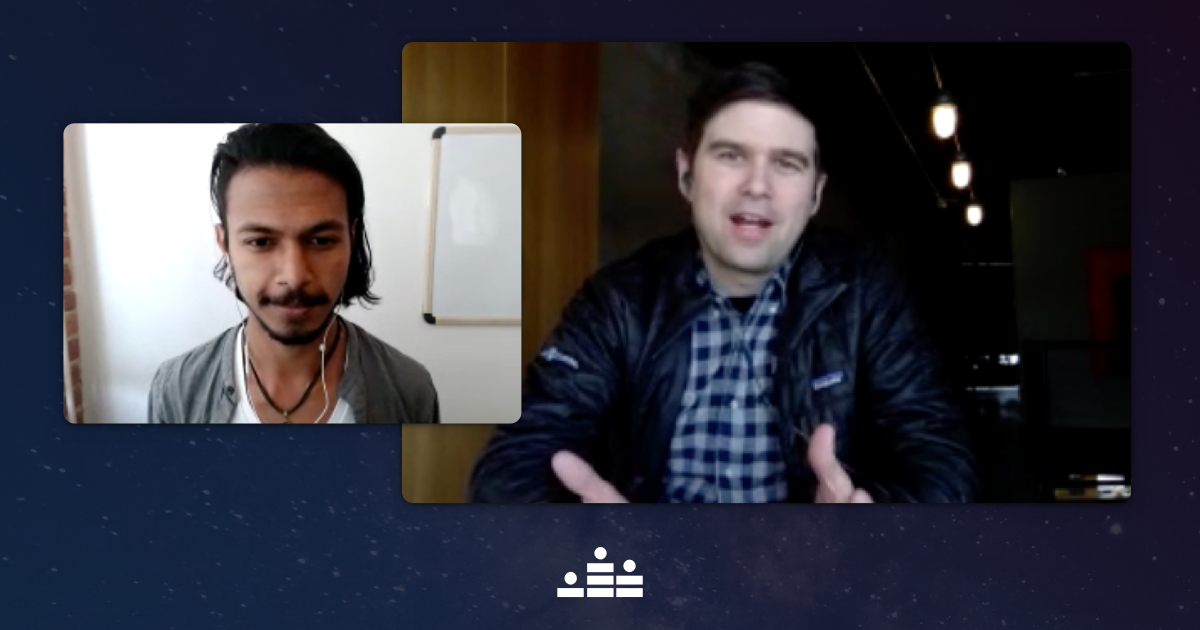
Some say that starting a software-as-a-service (or “SaaS”) business is the holy grail of startups. You write some code to solve a problem then people agree to pay you and through the magic of recurring revenue you make money while you sleep… right?
Turns out it’s pretty damn challenging (trust us — we know). But it’s also a richly rewarding path.
That’s why we wanted to interview Clay Collins, founder and CEO of a hugely successful SaaS company (Leadpages), to hear more about his story. What lessons has he learned? Where did he get the idea? How did he grow so fast in the early days? We dove into all this and more last week on Crowdcast Talks with Clay. Here are our five key takeaways from the conversation.
1. Start with no
The key to finding your passion is saying no to everything else. If you don’t know what you want to be doing, start by removing the things you don’t want to do. This may seem risky but it may help you attain clarity faster. For all the talk on how to find your passion that’s out there these days, this was a refreshing insight focusing not just on what to do to “find your passion” but what to stop doing.
2. Burn the ships
One recurring theme in Clay’s life has been to create situations where you have no option but to succeed.
Don’t be afraid to throw yourself into a sink-or-swim situation when it comes to your business. This “gun-to-the-head” approach helped Clay build excellent products with laser focus. Sure it’s stressful, but sometimes this is exactly how you grow the fastest. Just ask Clay, who attributes his fast-acquired copywriting skills to dropping out of grad school (twice) and ending up back at his parents’ house.
Sometimes you just need to put yourself in a situation where failure isn’t an option in order to excel.
3. Forget the MVP — and start with a “minimum viable audience”
The secret to Leadpages’ impressive early growth? Starting with an audience first and then developing a product. In the case of Leadpages, Clay had already done the hard work of creating a following around marketing strategies, which made all the difference. Specifically, it helped in two ways:
First, it gave him an existing customer base to do pre-sales (so he could fund the product through the customers)And second, it gave him access to a group of potential users with a common problem so he could learn what the problem was and how to build a product to solve it.
This runs counter to the lean startup methodology of building your minimum viable product first — but it pays off.
To quote Clay, “If you can’t even get someone to subscribe, what are the chances that you can get someone to buy?”
4. The best way to price your product may be counterintuitive
Making your product free for your smaller-scale users can actually be good for your business over the long term. Why? This kind of pricing smooths out the balance sheet by refusing to even account for any income from the most volatile users. More importantly, it forces you to build an excellent product that makes your customers successful (there’s that forcing function ethos again). With freemium pricing, if your users aren’t succeeding, your business isn’t succeeding.
“There are lots of businesses in the internet marketing space that are taking money month after month from people who essentially have no business. In my view if you’re getting paid by a customer who essentially has no business it’s not a matter of if but when that customer’s gonna churn. So we didn’t want to acknowledge revenue from customers that were likely to churn even if we didn’t know when.”
5. Master one marketing channel first
Lots of people make the mistake of trying several marketing channels to try to “hack” their way to growth. This is a mistake, says Clay. The key is to find something that could work and master that channel first. Once you’ve exhausted the growth from that channel, move onto the next. This channel-by-channel approach doesn’t come easy because it requires discipline and focus. But it was one of the keys to Leadpages’ impressive early growth as they started with their blog and email marketing and then moved onto to go “super deep” on video through YouTube and webinars.
“Don’t be everywhere, just go all in on one channel. Assess if you can make it work and double down or move onto the next.”
Final words of wisdom
Finally, Clay had some general advice to share on starting a company and learning to share it with the world.
“Let your light shine. Let the brilliance of your passion and your vision flow through to everyone. Don’t be shy about saying hey I have this thing to offer the world, here’s what it is, here’s the price point, we’re gonna crush it for you. Let’s move forward.”
Watch the full interview here →
To join upcoming Talks events, follow us on Crowdcast to be notified of upcoming interviews with amazing thought leaders and entrepreneurs.
Sai
Founder & CEO — Building spaces for community.